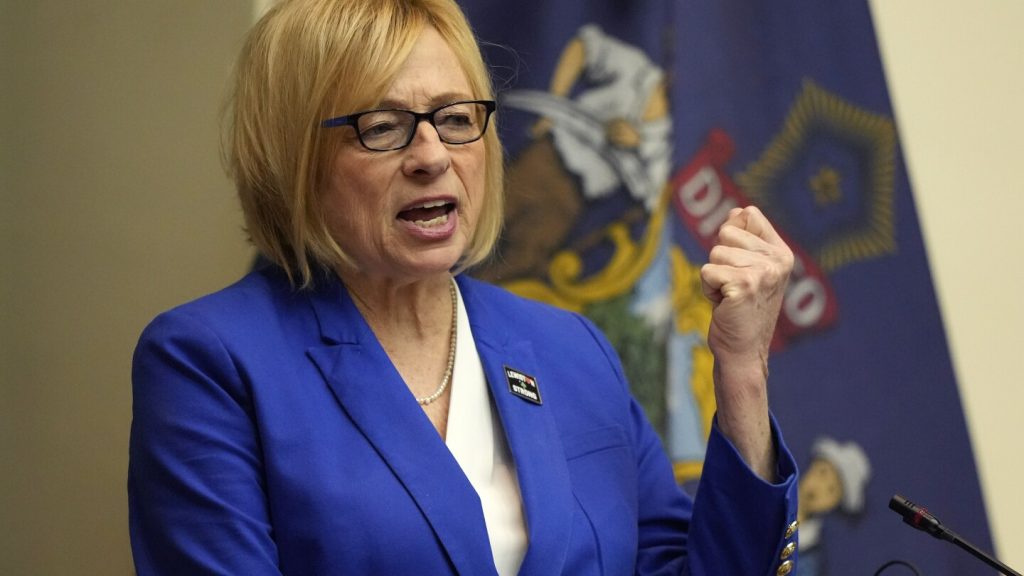Maine has become the latest state to join a multistate effort to elect the president by popular vote. Democratic Governor Janet Mills announced that she will let the proposal become law without her signature. Under the proposed compact, each state would allocate all its electoral votes to whoever wins the national popular vote for president, regardless of how individual states voted in an election. The National Popular Vote Interstate Compact is currently on hold and will not play a role in the upcoming November election.
Governor Mills stated that she believes the person who wins the most votes should become the president, as it aligns with the democratic foundations of the country. She acknowledged that there are different facets to the debate, with opponents arguing that small states like Maine could be marginalized if the electoral college is eliminated, while proponents highlight that two of the last four presidents were elected through the electoral college despite losing the national popular vote. Despite recognizing both arguments, Mills wants the nationwide debate on this issue to continue.
The compact will only take effect if states with at least 270 electoral votes pledge their support. Currently, sixteen states and Washington, D.C. have joined the compact, and Maine’s addition would bring the total to 209. However, there are still hurdles to overcome, including determining if congressional approval is necessary to implement the compact. In Maine, the debate in the legislature fell along partisan lines, with Republicans united in opposition to the compact.
Maine is one of only two states that split their electoral votes under the current system. The state awards two of its four electoral votes to the statewide presidential winner and one each for the winner of each congressional district. In 2016, Maine split its electoral votes for the first time when Republican Donald Trump won a single electoral vote in the northern, conservative 2nd Congressional District. Trump again collected an electoral vote in 2020 despite losing the popular vote in Maine. The impact of joining the compact on Maine’s electoral system remains to be seen.
Overall, the decision by Governor Mills to allow Maine to become a part of the National Popular Vote Interstate Compact without her signature highlights the ongoing debate surrounding the electoral college system and popular vote for electing the president. As more states join the compact and discussions continue on the national level, the future of how presidential elections are conducted in the United States may see significant changes. Maine’s participation adds to the momentum of the compact and raises questions about the role of smaller states and the electoral college in the democratic process.















